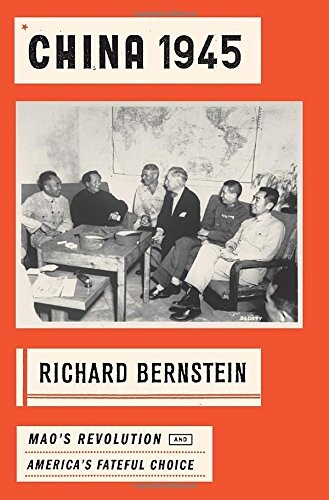




464 pages | 4th November, 2014 | Non-fiction | Political Science; International & World Politics
A riveting account of the watershed moment in America’s dealings with China that forever altered the course of East-West relations
As 1945 opened, America was on surprisingly congenial terms with China’s Communist rebels—their soldiers treated their American counterparts as heroes, rescuing airmen shot down over enemy territory. Chinese leaders talked of a future in which American money and technology would help lift China out of poverty. Mao Zedong himself held friendly meetings with US emissaries, vowing to them his intention of establishing an American-style democracy in China.
By year’s end, however, cordiality had been replaced by chilly hostility and distrust. Chinese Communist soldiers were setting ambushes for American marines in north China; Communist newspapers were portraying the United States as an implacable imperialist enemy; civil war in China was erupting. The pattern was set for a quarter century of almost total Sino-American mistrust, with the devastating wars in Korea and Vietnam among the consequences.
Richard Bernstein here tells the incredible story of that year’s sea change, brilliantly analyzing its many components, from ferocious infighting among US diplomats, military leaders, and opinion makers to the complex relations between Mao and his patron, Stalin.
On the American side, we meet experienced “China hands” John Paton Davies and John Stewart Service, whose efforts at negotiation made them prey to accusations of Communist sympathy; FDR’s special ambassador Patrick J. Hurley, a decorated general and self-proclaimed cowboy; and Time journalist, Henry Luce, whose editorials helped turn the tide of American public opinion. On the Chinese side, Bernstein reveals the ascendant Mao and his intractable counterpart, Nationalist leader Chiang Kai-shek; and the indispensable Zhou Enlai.
A tour de force of narrative history, China 1945 examines the first episode in which American power and good intentions came face-to-face with a powerful Asian revolutionary movement, and challenges familiar assumptions about the origins of modern Sino-American relations.
"If you read only one book on this crucial period, Mr. Bernstein’s work should be it."
The Washington Times
"Excellent….Bernstein…covers China’s political context in 1945 like a scholar, but maintains his journalist’s eye for human drama."
The New York Times Book Review
"Elegant and compelling….This thoughtful book moves decisively beyond sterile old debates to demonstrate that in the end, China’s fate in 1945 was for the Chinese people, and not Americans, to decide."
Foreign Affairs
"Skillfully crafted…Mr. Bernstein provides a rich account of just how far the Communist leaders went in wooing, and misleading, the Americans….This attention to the Chinese point of view sets Mr. Bernstein’s book apart from its most celebrated precursor, Barbara W. Tuchman’s 1971Stilwell and the American Experience in China, 1911-1945."
The Wall Street Journal
"Excellent….An important book."
The Washington Post
"Authoritative and engaging."
NPR
Richard Bernstein has been a reporter, culture critic, and commentator for more than thirty years. He was a foreign correspondent in Asia and Europe for Time and The New York Times, and was the first bureau chief in China for Time. He is the author of several books, among them China 1945; A Girl Named Faithful Plum; Ultimate Journey, a New York Times Best Book of the Year; and Out of the Blue, named one of the seven best books of the year by The Boston Globe. He lives in New York City.
US: Knopf